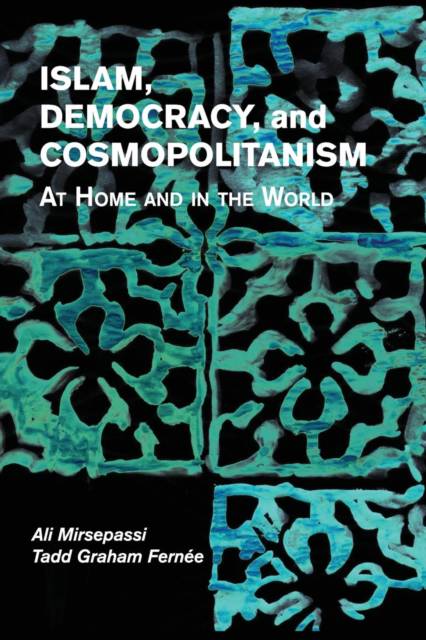
- Afhalen na 1 uur in een winkel met voorraad
- Gratis thuislevering in België vanaf € 30
- Ruim aanbod met 7 miljoen producten
- Afhalen na 1 uur in een winkel met voorraad
- Gratis thuislevering in België vanaf € 30
- Ruim aanbod met 7 miljoen producten
Zoeken
Islam, Democracy, and Cosmopolitanism
At Home and in the World
Ali Mirsepassi, Tadd Graham Fernée
Paperback | Engels
€ 43,45
+ 86 punten
Uitvoering
Omschrijving
This book presents a critical study of citizenship, state, and globalization in societies that have been historically influenced by Islamic traditions and institutions. Interrogating the work of contemporary theorists of Islamic modernity such as Mohammed Arkoun, Abdul an-Na'im, Fatima Mernissi, Talal Asad, Saba Mahmood, and Aziz Al-Azmeh, this book explores the debate on Islam, democracy, and modernity, contextualized within contemporary Muslim lifeworlds. These include contemporary Turkey (following the 9/11 attacks and the onset of war in Afghanistan), multicultural France (2009-10 French burqa debate), Egypt (the 2011 Tahrir Square mass mobilizations), and India. Ali Mirsepassi and Tadd Ferneé critique particular counterproductive ideological conceptualizations, voicing an emerging global ethic of reconciliation. Rejecting the polarized conceptual ideals of the universal or the authentic, the authors critically reassess notions of the secular, the cosmopolitan, and democracy. Raising questions that cut across the disciplines of history, anthropology, sociology, and law, this study articulates a democratic politics of everyday life in modern Islamic societies.
Specificaties
Betrokkenen
- Auteur(s):
- Uitgeverij:
Inhoud
- Aantal bladzijden:
- 234
- Taal:
- Engels
Eigenschappen
- Productcode (EAN):
- 9781107645875
- Verschijningsdatum:
- 28/07/2016
- Uitvoering:
- Paperback
- Formaat:
- Trade paperback (VS)
- Afmetingen:
- 152 mm x 229 mm
- Gewicht:
- 317 g

Alleen bij Standaard Boekhandel
+ 86 punten op je klantenkaart van Standaard Boekhandel
Beoordelingen
We publiceren alleen reviews die voldoen aan de voorwaarden voor reviews. Bekijk onze voorwaarden voor reviews.











